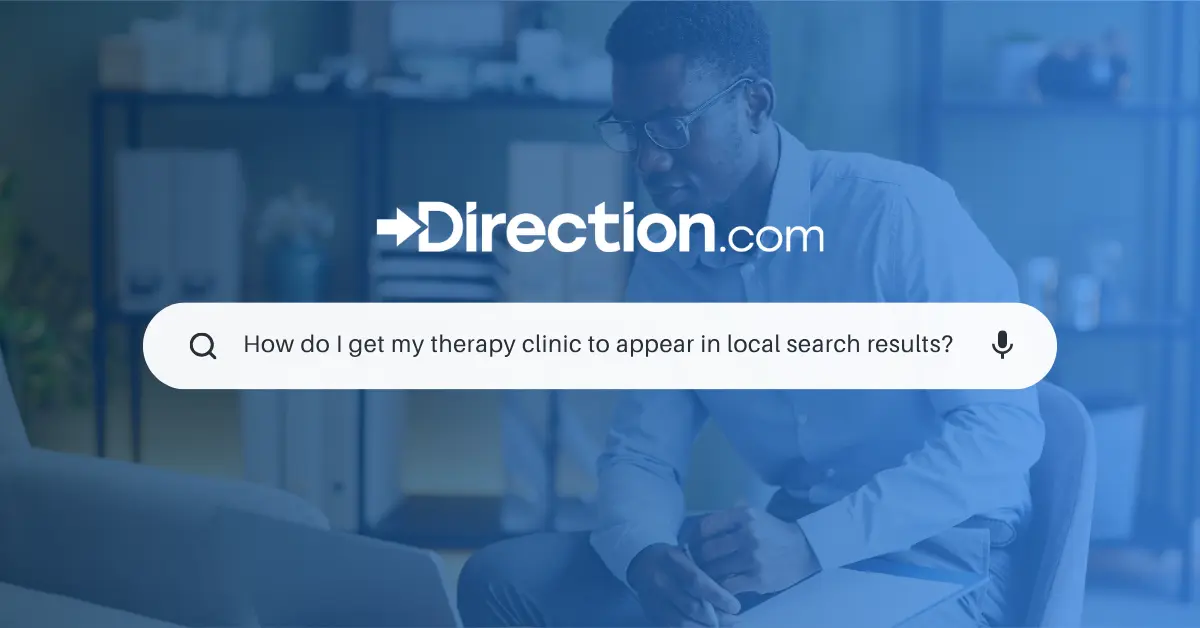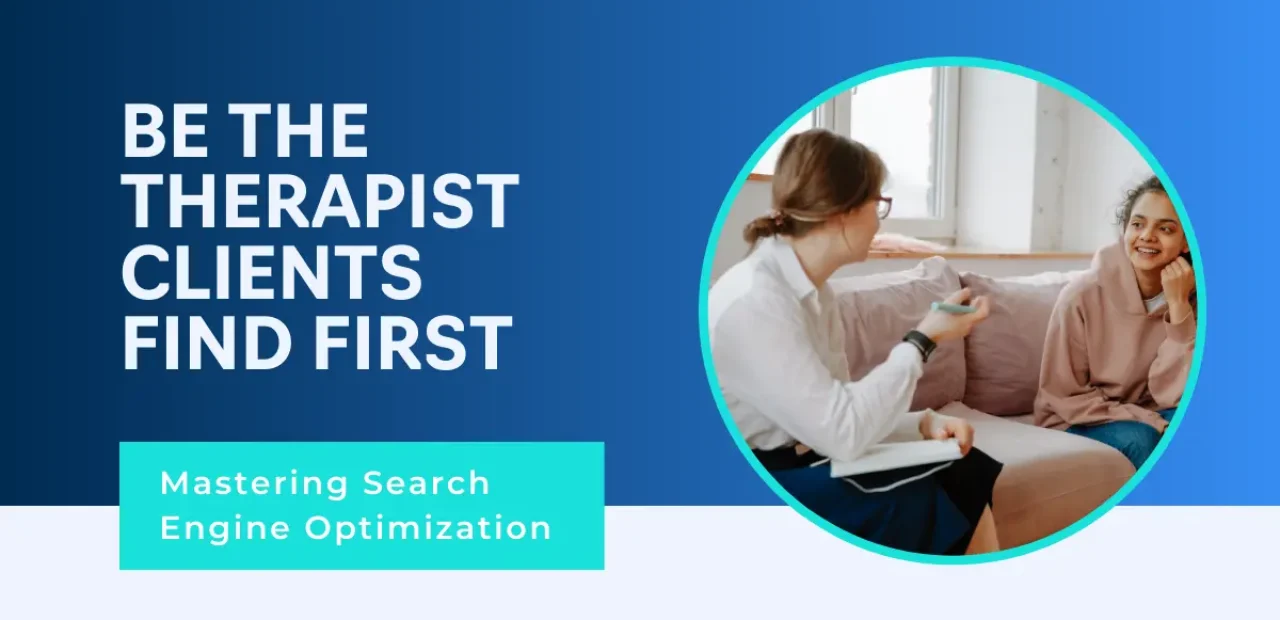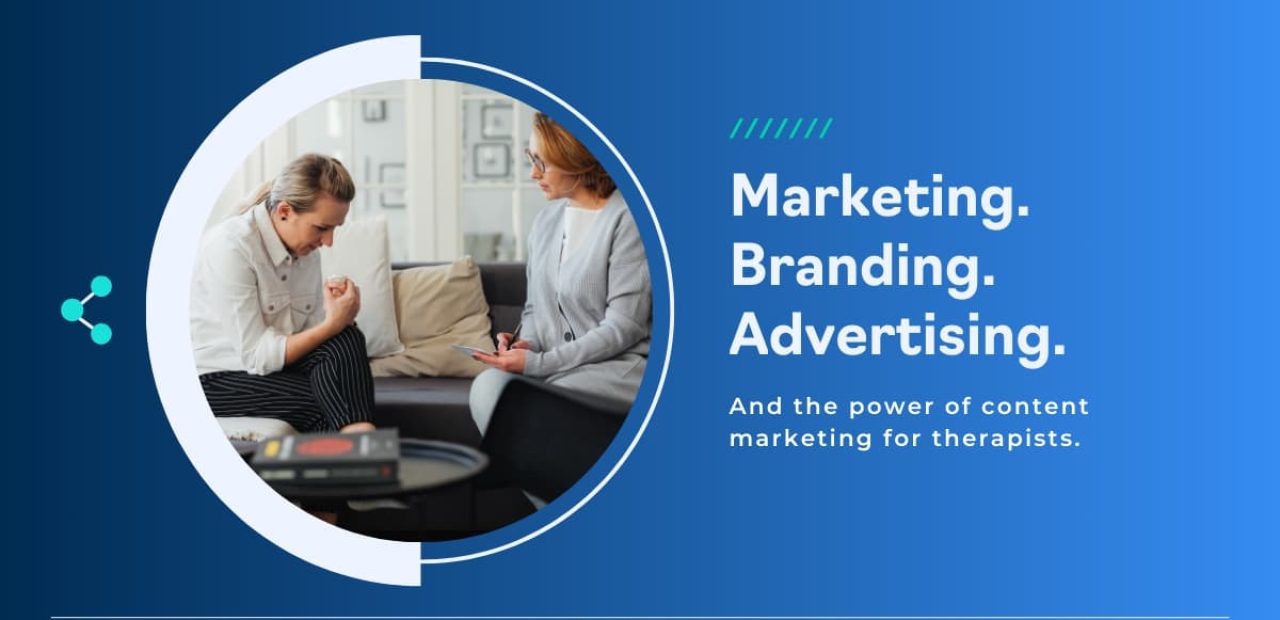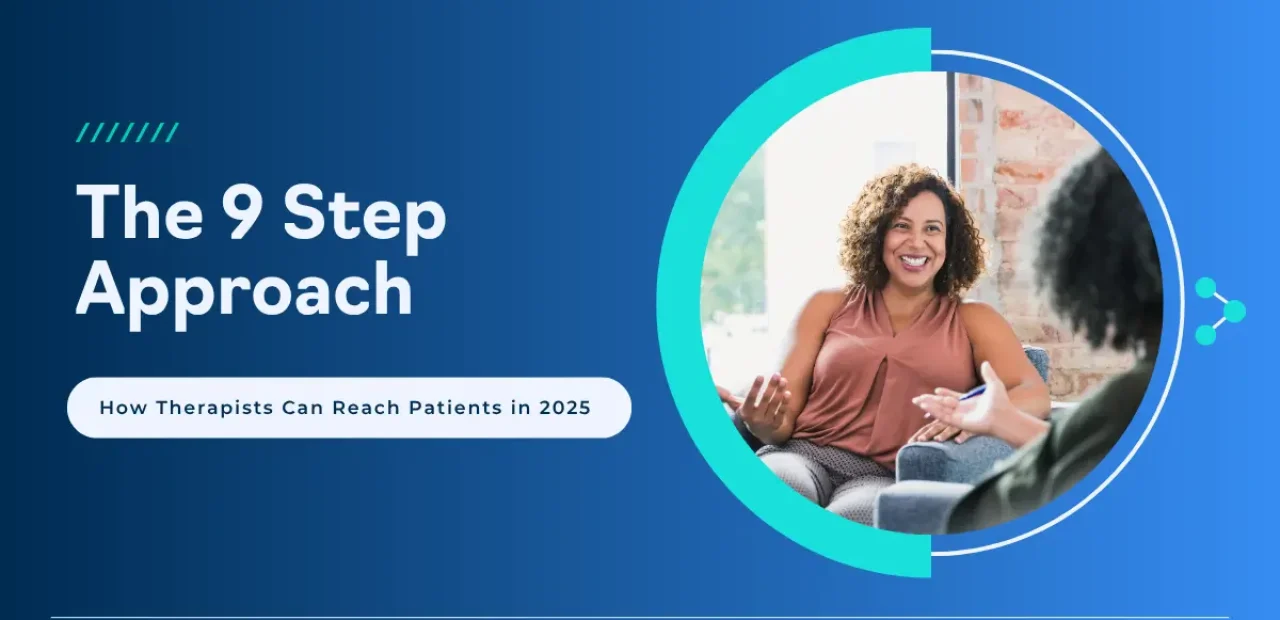I’ve sat across from dozens of practice owners who’ve asked the same quiet question: “Why am I not showing up in Google for my own city?”
Not out of ego. Out of exasperation.
They’ve done the work. They’ve built the practice. They’ve served their clients with integrity. But when someone types “therapist near me” – they’re invisible.
You can feel the frustration behind the silence. You can see it in the plateauing referrals, the uptick in client no-shows, the rising competition from corporate therapy platforms that feel more algorithm than human.
And then comes the gut-punch: “I even paid someone for SEO… and nothing changed.”
Here’s what most therapists don’t realize: local SEO isn’t just an add-on.
It’s the foundation.
Because even if you’re doing powerful, life-changing work – if your name isn’t in the top three local results, most people will never know you exist.
This isn’t about popularity. It’s about proximity.
When a client is in crisis or in search, they don’t browse directories for hours. They trust what shows up first. They call what feels nearby. They click what feels relevant to their city, their need, their urgency.
And that’s where the gap widens – between the therapists doing incredible work and the therapists who are actually found.
Local SEO closes that gap.
So if you’re tired of feeling like the best-kept secret in your own neighborhood, or if your teletherapy brand serves five different regions but you only rank in one…this article is for you.
We’re going to break down what local SEO actually is, why it’s different for therapists, and how you can use our programmatic system – Mosaic – to show up everywhere your clients are looking, without compromising your ethics or drowning in technical jargon.
Let’s start by redefining the term everyone throws around, but few apply correctly in a clinical context.
What Is Local SEO and Why It’s Different for Therapists
Let’s clear something up before we go any further:
Local SEO isn’t about hacking the algorithm.
It’s about meeting clients where they’re already searching.
At its core, local SEO is the practice of helping your therapy practice show up in search results when someone nearby types in a service-related query.
- “Therapist near me”
- “Grief counseling in Charlotte”
- “Online anxiety therapy in Austin”
That’s local SEO in motion. It’s Google recognizing your relevance to a geographic area and a clinical need – and presenting you as a trustworthy result.
Sounds simple. But here’s where it gets complicated for therapists.
Local SEO for a therapist isn’t the same as for a coffee shop.
Yes, both are service-based businesses.
But therapy carries nuance – HIPAA compliance, high-trust decisions, personal vulnerability, and a much longer client journey.
Someone looking for a cappuccino near 5th and Main isn’t worried about confidentiality.
Someone looking for trauma therapy in Des Moines is.
And the SEO strategy has to reflect that.
The reality for therapists is this:
- Your clients aren’t searching in bulk – they’re searching in crisis.
- They won’t scroll past the first page.
- They want relevance, not volume.
- They’ll compare tone, not just ratings.
That means your visibility strategy has to be more thoughtful. More structured. More empathetic.
And if you offer teletherapy across multiple regions or states, the game changes again.
You’re not bound by a single location, but your clients still search by geography.
So unless you have content – specific to that city, that need, that service – you’ll never appear.
And no amount of general blog posts will fix that.
This is why therapists struggle to get found in the towns they serve.
Because “local” SEO, in your case, doesn’t just mean local. It means intentional. It means identity. It means being the therapist someone in [City Name] believes is already part of their community, even if your sessions happen over Zoom.
How Local SEO Works for Therapy Practices
Local SEO for therapists isn’t about gaming Google – it’s about aligning your practice with the right search signals so that the right clients find you first.
Think of it like this: If your practice were a local landmark, Google needs signs pointing to it from every direction – digital street signs that tell search engines, “this is the therapist people in this region are looking for.”
There are five main signals that guide that visibility:
1. Google Business Profile (GBP) Optimization
Your Google Business Profile is your digital front door.
And yet, I’ve reviewed countless therapist profiles that are incomplete, inconsistent, or missing altogether. That’s like locking the door before clients even get a chance to knock.
Here’s what matters:
- Accurate name, address (even if it’s a virtual office or service area), phone number, and website
- Clear service categories (i.e. “Mental Health Service,” not “Life Coach”)
- A strong description that communicates your specialty without overstepping ethical bounds
- Updated hours and service details (e.g. teletherapy availability)
- Real client reviews and ethical responses
If you’re not optimizing this profile, you’re not just invisible – you’re unclickable.
2. NAPW Consistency
That acronym stands for: Name, Address, Phone, Website
It sounds basic. But inconsistency here kills trust.
If your info is slightly different on Yelp, Psychology Today, and your site, Google starts to doubt the credibility of your listing – and so do prospective clients.
Audit every directory. Update every listing. Match it exactly to what’s on your website and GBP.
Consistency isn’t a detail. It’s a local SEO ranking factor.
3. Location-Specific On-Page Content
This is where most therapy websites fall short.
You can’t just have a single “Services” page and expect to rank in five different cities.
If you want to show up in Wilmington for anxiety therapy, you need a page that speaks directly to people in Wilmington searching for anxiety support.
Why?
Because search engines match local intent with local context.
That means content like:
- “Anxiety therapy for adults in Wilmington”
- “Trauma counseling near Uptown Charlotte”
- “Couples therapy in Phoenix that blends mindfulness with structured communication work”
Each of these tells Google: this therapist serves this population in this location.
No page? No ranking.
4. Reviews and Ethical Engagement
Google values reviews – and so do your future clients.
But for therapists, this has to be handled carefully.
You can’t solicit testimonials the same way a restaurant might.
But you can ask for feedback through secure channels, link to public review platforms, and provide guidance for clients who wish to share their experience voluntarily.
Responding to reviews ethically (without revealing client details) also signals engagement and credibility.
Here’s some sample language: “Thank you for your thoughtful feedback. I appreciate your trust and commitment to the work.”
Simple. Boundaried. Effective.
5. Local Backlinks and Citations
Backlinks are mentions of your site on other trusted websites.
For therapists, this could mean:
- Listings on therapy directories
- Mentions in local press or health directories
- Inclusion in Chamber of Commerce or mental health coalitions
- Guest content on regional wellness blogs
The more your practice is cited around the web – with location-specific context – the more Google sees you as rooted in that community.
None of these elements alone create authority.
But together, they create the signal network Google needs to recognize your relevance – and the map your clients need to find you faster.
And yet, most therapists stop here.
They optimize a profile, tweak a few headers, and hope that’s enough.
Why Most Therapists Struggle with Local SEO
You’re not alone if you’ve tried local SEO and seen little – if any – return.
“I paid an agency. I updated my Google listing. I even wrote a blog post with my city name in it. Why am I still buried under corporate directories?”
It’s not because your practice isn’t good. It’s not because your city is oversaturated.
It’s because most local SEO campaigns for therapists miss the mark.
Let’s look at why.
1. Agencies are Using Templates Built for Plumbers and Real Estate Agents
Most agencies offer generalized “local SEO” packages.
These work fine for high-volume services. Not for therapy.
They ignore nuance. They recycle keyword stuffing.
They don’t understand that someone looking for a therapist is asking, “Can I trust you with my story?”
A page optimized for “emergency AC repair in Tampa” will rank.
A therapist’s site using that same strategy won’t just underperform – it’ll repel.
2. They Don’t Build Location-Specific Pages at Scale
One of the biggest gaps? No service-area structure.
If you’re offering therapy in five cities – but only have one “Therapy Services” page – you’re forcing Google to guess where you serve.
It won’t.
And even when a few therapists try to create location pages, they copy-paste the same content and change the city name.
Google notices.
So do clients.
Local content must feel written for that region, not cloned for coverage.
3. They Lack a Strategy for Teletherapy
This is where things get even murkier.
Many therapists now offer virtual sessions – but they don’t show up in any of the cities they serve.
Why?
Because their site makes no mention of those locations.
Because there’s no landing page tailored to “virtual therapy in Denver,” or “online grief counseling for Chicago residents.”
Search engines can’t infer your presence in a region unless you claim it through content.
If you’re a teletherapy practice, this isn’t optional. It’s essential.
4. Their Marketing Feels Ethically Misaligned
This one hits home.
I’ve seen therapists reject SEO completely – not because they don’t want more clients, but because the strategies they’ve seen feel gimmicky, loud, or transactional.
Therapy isn’t a hard sell. And your marketing shouldn’t feel like one.
But ethical, empathetic visibility is still possible. It’s what your future clients want from you – clarity, not persuasion.
If the agencies you’ve worked with don’t understand HIPAA, client confidentiality, or the therapeutic alliance, you’re right to feel cautious.
The solution isn’t no marketing.
It’s better-aligned marketing.
5. They’re Left Without Tracking or Feedback
Let’s say you do everything right: you hire someone, they update your listings, add some content… and that’s it.
No tracking. No insight. No connection to real-world results.
So you’re left wondering:
- “Are we getting more traffic?”
- “Are more people finding us through Google?”
- “Which service pages are converting?”
If you’re not getting answers to those questions, you’re not getting SEO.
You’re just getting busywork.
Therapists struggle with local SEO not because they’re resistant – but because they’ve been underserved.
They’ve been offered generic tactics for a deeply personal field.
They’ve been handed cookie-cutter content for a client experience that requires nuance, empathy, and clinical trust.
And that’s exactly why we built Mosaic.
The Mosaic System – One-of-a-Kind Local SEO for Therapists
If everything we’ve covered so far resonates, then you’re likely asking: “Is there a way to do this right – without having to become a full-time SEO specialist or hand over control to someone who doesn’t understand therapy?”
Yes. That’s why we built Mosaic.
Mosaic isn’t just software.
It’s a strategy, a structure, and a system – engineered to solve the exact problems therapy practices face when trying to grow locally, regionally, or across state lines.
So what is it?
Mosaic is a programmatic local landing page system that creates city-specific pages – at scale – using literary techniques, semantic SEO strategy, and rhetorical frameworks designed to both rank in search engines and resonate with human readers.
It’s not content for content’s sake. It’s content that knows what it’s doing.
Why Mosaic Is Different
Most agencies will offer to “build a page” for each city you serve.
But here’s the problem:
- Those pages are often duplicated and slightly rewritten
- They follow the same hollow template
- They don’t reflect your voice, your clinical strengths, or your audience’s psychology
And worst of all?
They don’t rank. And if they do, they don’t convert.
Mosaic changes that.
Each page generated with Mosaic is:
- Written with eloquence formulas – the same rhetorical frameworks you’re seeing in this article
- Tuned for reader retention (which Google sees as a ranking signal)
- Optimized with internal links, schema markup, metadata, and structured outlines
- Contextualized with geographic references that feel human, not manufactured
These aren’t landing pages. They’re literary SEO assets.
Built for scale. Designed to perform.
Who It’s Built For
Mosaic was created for:
- Teletherapy brands serving multiple cities or states
- Group practices with multiple locations that want localized visibility
- Solo practices ready to grow their presence in adjacent towns or zip codes
You don’t have to choose between being ethical and being visible.
You don’t have to compromise storytelling for scalability.
With Mosaic, you can rank in 10 regions without writing 10 versions of the same blog post.
You can attract clients across three counties without diluting your voice.
You can grow intentionally – without outsourcing your identity.
We designed Mosaic because we were tired of watching great therapists disappear beneath cookie-cutter strategies.
Now we’re watching them re-emerge – page by page, city by city, story by story.
The Direction Difference – Therapy SEO Backed by Clinical Context
Let’s name the deeper problem: Most SEO providers don’t understand therapy.
They understand clicks. They understand keywords. But they don’t understand care.
They don’t understand what it means to hold space for trauma survivors.
They don’t understand the ethical minefield of marketing therapy services.
They don’t understand the difference between transactional attention and relational trust.
We do.
That’s why we have a proven track record in SEO for therapists.
Our results are a reflection of how we approach marketing for mental health professionals – through the lens of clinical integrity, reader psychology, and long-term growth.
We Speak the Language of Therapy – Without Drowning It in Jargon
When we build your local SEO strategy, we’re not slapping cities into templates or loading your pages with filler.
We write content that mirrors your voice; that reflects your client journey; that honors the work you do in session without compromising the boundaries that protect it.
Because the goal isn’t visibility alone.
The goal is resonance. Alignment. Trust.
We Integrate Ethics Into Every Line
You won’t see inflated claims.
You won’t see manipulative copy.
You won’t see HIPAA violations or language that pressures vulnerable readers.
Instead, you’ll see:
- Clear explanations of therapeutic approaches
- City-specific language that makes people feel seen
- Rhetorical frameworks that build curiosity, not coercion
- Metadata and structure that speak to search engines without losing your soul in the process
We Don’t Just Write. We Build Systems That Scale
Mosaic integrates directly with your content roadmap.
It allows us to:
- Publish new location pages without months of delays
- Interlink across service areas for stronger authority
- Infuse every page with structured content that AI search engines can understand – and reward
- Report on performance metrics in real-time, so you know what’s working and where to expand
It’s not a guessing game.
It’s a structured system rooted in experience, designed to grow with you.
We’re Not Just Your SEO Partner. We’re Your Strategic Mirror.
When we work with therapists, we ask deeper questions:
- Where do you want to grow – geographically and professionally?
- What types of clients are most aligned with your work?
- How do we protect your brand as it scales across regions?
Because SEO without identity is forgettable.
And identity without visibility is invisible.
With Direction, you don’t have to choose.
The ROI of Getting Local SEO Right
Let’s be honest – if all this effort doesn’t lead to real growth, it’s just noise.
Therapists don’t need vanity metrics. They need movement:
- More inquiries from ideal-fit clients
- Less dependence on insurance-based referrals
- Better control over growth pacing
- Greater alignment with their values
Local SEO, when done well, drives exactly that.
And unlike paid ads that vanish the moment your budget runs out, local SEO compounds. It grows. It sticks.
Here’s what a well-executed strategy actually delivers:
1. Higher-Quality, Self-Pay Inquiries
This is the number one metric most practices care about: “Are we attracting the right people – who can afford to work with us directly?”
A strong local presence brings in clients who already believe you’re the right fit, not just the next available.
They’ve read your approach. They’ve seen your page specific to their city. They’re not price shopping – they’re resonance shopping.
And that makes all the difference.
2. More Local Referrals (Without Asking)
When your practice shows up prominently in a region, other professionals start referring to you – even if you’ve never spoken.
Local SEO creates visibility not just with clients, but with:
- Primary care doctors
- Wellness practitioner
- School counselors
- HR managers looking for local EAP partners
They Google “trauma therapy + [city]” and you appear.
That’s passive authority in motion.
3. Stronger Regional Brand Identity
You’re not just “a therapist.” You’re the therapist in a given region for a specific type of care.
That’s what local SEO makes possible.
When your name keeps appearing in relation to your specialty and your city – across blogs, directories, and Google Business Profiles – you become a recognized option, not just a clickable one.
This builds brand equity over time.
4. Data You Can Actually Use
With the right structure in place, you can track:
- Branded search growth (how often people are searching for you specifically)
- Clicks on specific location pages
- Calls and direction requests from Google
- Form submissions by city or service page
This isn’t about guessing. It’s about knowing what’s working – and where to reinvest.
5. Visibility That Scales With You
You don’t have to guess how to expand anymore.
Local SEO becomes the blueprint.
Want to target a new city?
Add a location-specific landing page.
Want to grow a new clinical service in an area?
Write supporting content and watch it gain traction.
When done properly, local SEO doesn’t just attract clients. It gives you direction.
To recap: the ROI is visibility, clarity, and aligned growth.
- More of the right clients
- More connection with your region
- More control over how your practice is found and understood
What Therapists Can Do Today to Improve Local SEO
You don’t need to rebuild your site from scratch.
You don’t need to master metadata or memorize the Google algorithm.
You just need to start moving – intentionally.
Here are five actions you can take right now to improve your local visibility without overhauling your entire marketing system:
1. Audit Your Google Business Profile
Most therapists treat this like a checkbox. Don’t.
- Is my phone number clickable on mobile?
- Does my description reflect my specialty and service region?
- Are my hours accurate?
- Am I categorized correctly (i.e., “Mental Health Service” or “Counselor”)?
- Have I added a booking link or contact form?
This is the first impression many clients will get. Make it count.
2. Standardize Your NAPW
Take 15 minutes to check your practice info across:
- Your website
- Psychology Today
- TherapyDen
- GoodTherapy
- Yelp
- Any local directories you’re listed on
Make sure every detail – name, address, phone, website – is exactly the same.
This one step can fix more ranking issues than you’d think.
3. Add a Location Page (Even Just One)
Pick the nearest city or zip code you want to rank in.
Create a new page titled: “Therapy for [Primary Service] in [City]”
On that page, write 300–500 words explaining:
- Who you help in that city
- What kind of therapy you provide
- How to reach you
- Where you’re located (or how virtual sessions are made accessible)
Don’t overthink the language. Just speak to the people you already serve.
4. Ask for Reviews – The Right Way
You can’t incentivize reviews. You can’t publish testimonials on your site.
But you can say something like: “If you’ve found value in our work together and would like to share your experience, some clients choose to leave a review on Google or Psychology Today.”
Leave it optional. Make it simple. Let them decide.
Over time, those reviews will do more for your visibility than any ad ever could.
5. Track the Metrics That Matter
Install Google Search Console. Check your analytics.
Track form submissions. Measure phone calls.
Even a basic spreadsheet can tell you:
- Which pages are getting traffic
- Which cities are generating clicks
- Which services clients are calling about
What you measure, you improve.
And what you ignore… well, that usually fades away.
If you’re not ready to implement everything at once, that’s okay.
Start with one city. One profile. One page.
Because the goal isn’t perfection – it’s momentum.
And momentum, especially in local SEO, is what separates practices that grow from practices that plateau.
Final Thoughts – If They Can’t Find You, They Can’t Book You
You can be the most compassionate therapist in your region.
You can offer frameworks that create safety, growth, and healing.
You can hold space for the hardest things your clients have ever carried.
But if no one sees you – if no one finds you – none of it reaches the people who need it most.
That’s the quiet tragedy I see far too often.
Not a lack of skill. Not a lack of care. Just a lack of visibility.
Local SEO isn’t about chasing clicks. It’s about being found by the people already looking for what you do best – in the exact places you’re equipped to serve.
If you’re offering therapy in five cities, your site should say so.
If you specialize in grief, anxiety, or couples work, your content should reflect that.
If you want more aligned, self-pay clients, your visibility strategy needs to support that outcome.
This isn’t about learning SEO. It’s about implementing a system that speaks your language, respects your values, and does the heavy lifting – quietly, effectively, in the background.
So here’s what I’ll leave you with:
If you’re tired of not being seen…
If your referrals have slowed…
If you’re doing great work but stuck beneath generic directories…
Don’t wait another year. Don’t guess your way forward.
Let’s map your presence across every city you serve – and turn your practice into something searchable, trustable, and undeniably visible.
Because if they can’t find you, they can’t book you.
But once they do?
They won’t forget you.






